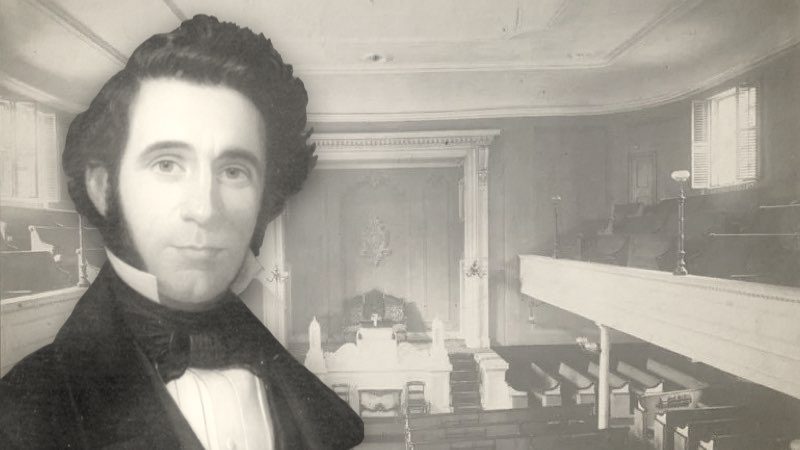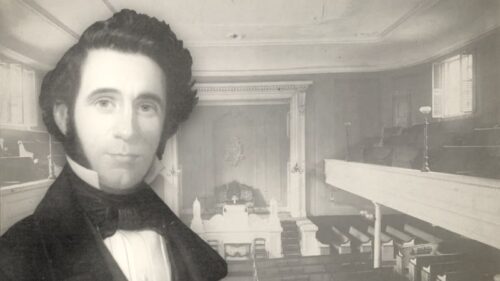-
6 Church Government
Is there any particular form of Church government revealed in the New Testament? And if so, what is it? These questions will be variously answered by Christian scholars and Bible students. Some hold that no specific form can be deduced from the sacred records, and that no one form is best suited for all people and for all places; and that it was purposely left for Christian wisdom and prudence, guided by experience, to decide that question. But the greater part believe that a specific form is at least outlined in the New Testament; and, naturally enough, each one believes the form with which he is identified is that divinely given form. It may be safely allowed that no one class or company of Christians…
-
5 Christian Ordinances
Christian ordinances are defined to be "institutions of divine authority relating to the worship of God, under the Christian Dispensation." In this general sense there are various ordinances; since preaching and hearing the word, prayer, singing, fasting, and thanksgiving may all be considered as institutions of divine authority. But in a narrower and a more distinctive sense it has been common to call Baptism and the Lord's Supper by this name, and to say they are the only Christian ordinances committed to the churches, and are for perpetual observance. These rites are also by some called sacraments the number of which the Catholic Church has increased to seven, including, with Baptism and the Eucharist, Confirmation, Penance, Extreme unction, Matrimony, and Orders. But in the sense…
-
4 Church Officers
Every form of organized society, whether civil, social or religious, is supposed to have officers, duly constituted to execute the laws, administer the government, and secure the ends contemplated by the organization. The Church is a commonwealth, a society, a family, and has its officers as leaders and administrators of its affairs. Officers, however, are not essential to the existence of a State, nor are they to the existence of a Church. They are nevertheless important to their highest efficiency, and the best exercise of their legitimate functions. The State does not lapse and cease to be, because its executive dies, resigns, or is removed. Nor does the Church cease to be a Church though it may be without officers. It was a Church before…
-
3 Church Membership
The character of a building depends very much on the materials of which it is constructed. Christian disciples "are builded together for a habitation of God, through the Spirit." Any society or association is largely what its constructive elements are. Combination and intercourse may, to a certain extent, modify individual peculiarities, but the corporate character will be the result of the various personalities which compose the body. The estimation in which will be held its internal life and order, the efficiency with which it will work toward its purposed end, will all be determined by the character of its individual elements. It is sometimes said that a Church is a voluntary society. This is true in a sense, and only with an explanation. It is…
-
2 A Christian Church
A Christian Church is a company of regenerate persons, baptized on a profession of faith in Christ; united in covenant for worship, instruction, the observance of Christian ordinances, and for such service as the gospel requires; recognizing and accepting Christ as their supreme Lord and Lawgiver, and taking His Word as their only and sufficient rule of faith and practice in all matters of conscience and religion. I. Meaning of the Word. The word Church is of uncertain derivation: English, Church; Scottish, Kirk; Anglo-Saxon, Cyric; German, Kirche; Danish, Kyrke; Swedish, Kyrka; Russian, Zerkow. It is used as the equivalent, if not derived from the Hebrew Kahal; Latin, Curia and has usually been derived from the Greek Kuriakon—"belonging to the Lord." This is, however, disputed by…
-
1 Propositions And Statements
I. Distinguishing Propositions Proposition 1 The Bible is a Divine Revelation given of God to men, and is a complete and infallible guide and standard of authority in all matters of religion and morals; whatever it teaches is to be believed, and whatever it commands is to be obeyed; whatever it commends is to be accepted as both right and useful; whatever it condemns is to be avoided as both wrong and hurtful; but what it neither commands nor teaches is not to be imposed on the conscience as of religious obligation. Proposition 2 The New Testament is the constitution of Christianity, the charter of the Christian Church, the only authoritative code of ecclesiastical law, and the warrant and justification of all Christian institutions. In…


